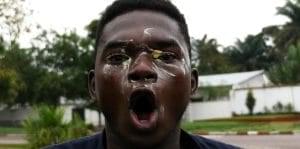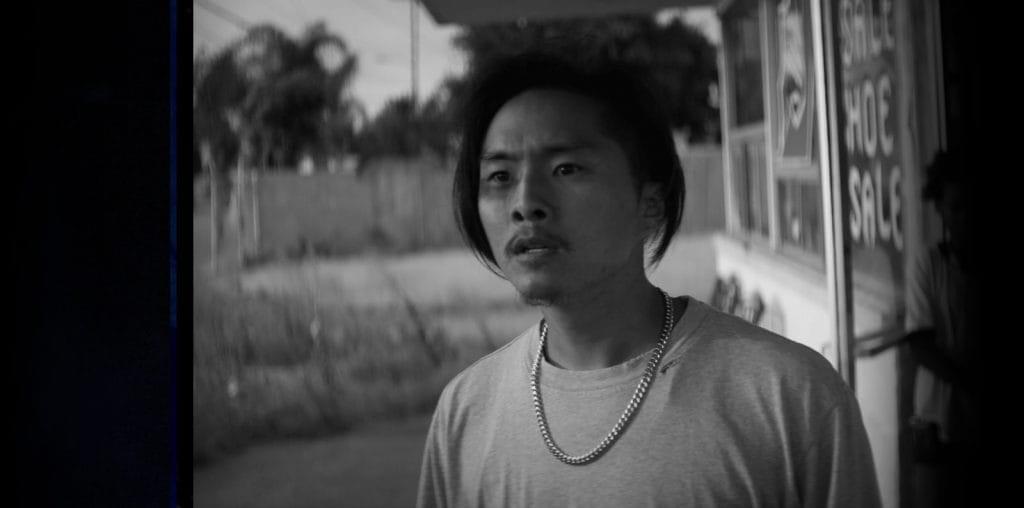
The immortal words of Lord Acton still apply today, “Power tends to corrupt, and absolute power corrupts absolutely.” This struggle for power, in these times, has a destructive element that starts at the top of leadership and trickles down to us, the lowly voter. Right or left, the way we go about politics is divisive and toxic. So, how was your Thanksgiving? In the States, there is still a semblance of civility. We still consider elections to be essential and the results of those elections binding…for the most part.
But what happens when a leader just can’t step away, because of that pesky constitution. In the documentary, Kinshasa Makambo, Dieudo Hamadi takes his camera into the heart of a political revolution in Congo. This movement is just one example of the fight for freedom among dozens of other countries today. Hamadi goes deep into the battle for political change when in 2016 The Democratic Republic of Congo’s president Laurent Kabila attempted to amend the constitution to extend his reign for a third term and refused to step down in the meantime.
Immediately, the people of Congo gathered under former Prime Minister Etienne Tshisekedi to demand Kabila step down and hold constitutionally mandated elections. The demand is met with resistance from Kabila and violence in the streets of its capital, Kinshasa.
“…Congo’s president Laurent Kabila attempted to amend the constitution to extend his reign…and refused to step down in the meantime.”
Hamadi grabs his camera and follows three men involved in the resistance as they plan a major demonstration at the capital on the day Kabila is supposed to step down. First, there’s Ben, a political exile living in New York. He is convinced to return to Congo to fight for its people. Jean-Marie is a political dissident, just released from prison at the start of the film. He was held, tortured, and beaten because he dared to speak out publicly against the president and actively recruits for the resistance. Finally, Christian is one of the faithful “soldiers” of the resistance. He’s there in support for change and restoring a voice to Congolese citizens.
Kinshasa Makambo centers around this planned demonstration on December 19, 2016. Believing Kabila will still be in power, the planning begins. We sit in on several separate planning meetings (for the lack of a better word). Frustration mounts as members complain that their non-violent advocate Tshisekedi does is “dialogue” instead of fight, thus resulting in nothing but delays the pending demonstration and further postpone the election. The thought is if Kabila can kill the opposition’s momentum, he can destroy the movement altogether. Then they discuss how to rally the citizens together, arguing that you can’t create a rebellion on Facebook and Twitter. You’ve got to get them on the ground.
Then we move on to preparation for the demonstrations. What do you do when it’s just you out there, and you’re toe-to-toe with the police behind armor, shields and bearing tear gas? A good makeshift defense for tear gas is a temporary mask made from used water bottles and butter smeared on the eyes. They go to extreme lengths to ensure it works.
“…a fascinating look at a rebellion from the point of view of its citizen army, not its political leaders.”
Kinshasa Makambo is a fascinating look at a rebellion from the point of view of its citizen army, not its political leaders. Hamadi is in the center of not only the conflict against the state but within the resistance itself. He captures the danger by taking his camera into the center of the film’s opening demonstration. As the tension starts, so does the shakiness of his camera. The shakiness evolves into a motion-blurred panic as tear gas falls from the sky and the gunfire begins.
What Hamadi does is not merely document an uprising, but instead he presents the inner-workings from an emotional and intellectual standpoint. His subjects are angry and frustrated as they debate whether non-violent demonstrations are still effective. They use national events, such as the date Kabila is to step down, as a way to build momentum among the citizens. In fact, they are always looking for events such as this to build and maintain momentum. Then there are the consequences for standing against the state. Ben was forced into exile for his beliefs. Jean-Marie faced imprisonment and torture.
Kinshasa Makambo presents the real price and the real consequences of demanding one’s freedom. The citizens of Congo don’t have the luxury to post meme’s on social media and attend the march of the month. Their very lives are worth given for the freedom they once had.
Kinshasa Makambo (2018) Directed by Dieudo Hamadi.
7.5 out of 10 stars

